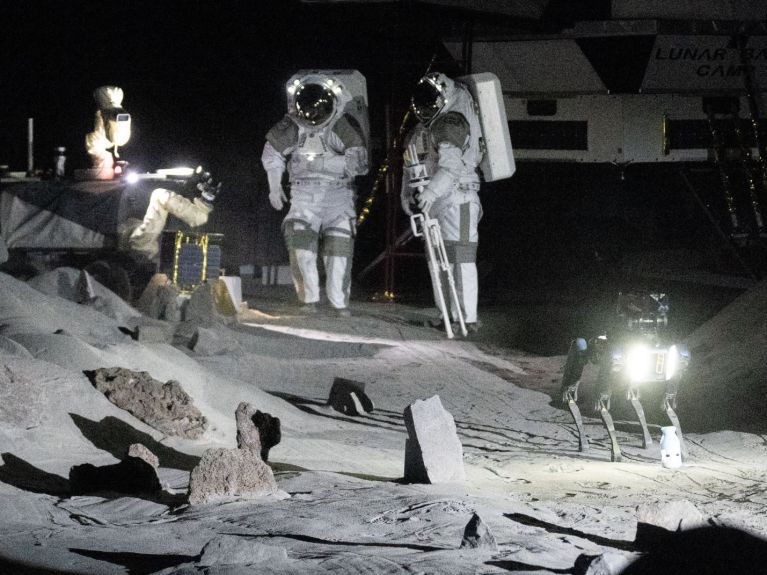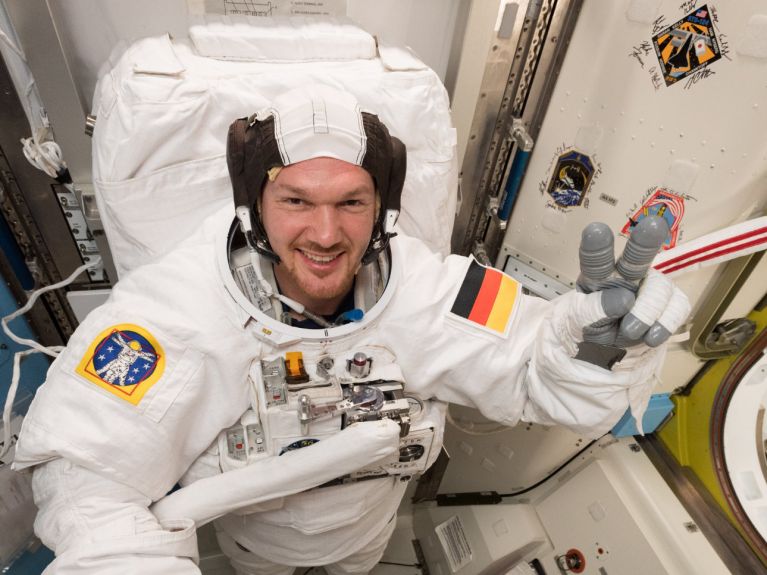5 facts regarding space travel in Germany
From founding member of the ESA to the astronaut training centre: How is Germany involved in space travel?

Aerospace research has a significant impact on our everyday lives. Technologies such as the internet, television and navigation would be impossible without space travel. It is a key technology that is vitally important to Germany’s economy.
- Germany is a founding member of the ESA
As a founding member of the European Space Agency (ESA), Germany has actively helped to shape European space research from the very start. The ESA includes 22 member states and has been Europe’s gateway to space since 1975. The German Aerospace Centre (DLR) represents Germany’s interests.
- Twelve German astronauts have already been in outer space
The first German in space was Sigmund Jähn in 1978, an officer in the NVA (the former GDR army). Alexander Gerst was the first German commander of the ISS in 2018.
- Germany is the major contributor to the ESA
Germany financed around 22 per cent of the ESA’s overall budget in 2024, which makes it the major contributor ahead of France and Italy. Germany is particularly involved in ESA programmes that prioritise climate protection, European sovereignty, New Space (the emerging private space industry) and international cooperation.

- Germany is a strong European partner to the ISS
The ISS is a significant international technology project with active German participation. Germany currently provides 39 per cent of European participation.

- Germany is a prime location for European space research
Many national and international institutions that conduct space research are based in Germany. The ESA operates its astronaut training centre in Cologne and its European Space Operations Centre, the ESOC, in Darmstadt. The DLR is Federal Germany’s research centre that conducts aerospace research.


